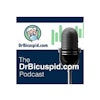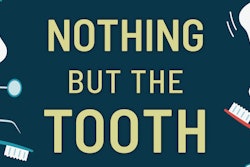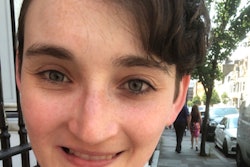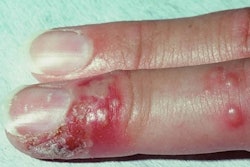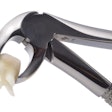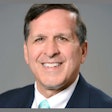
In Margot Sanger-Katz's August 29 New York Times article, she describes the plight of millions of older people in the U.S. who cannot afford dental care. Many are shocked to discover that Medicare does not include dental benefits except in rare situations. There may be hope, though. In a recently passed $3.5 trillion congressional budget proposal, legislators earmarked money for an as-yet-unspecified dental benefit.
The opportunity to prioritize oral healthcare for millions is something that should be celebrated by dentists. However, I was disappointed to read Sanger-Katz's assertion that the bill's "main opposition comes from dentists." She concluded that dentists "are worried that it would pay them too little."
 Dr. Teresa Yang.
Dr. Teresa Yang.Sanger-Katz didn't provide supporting statistics or proof in her indictment of dentists. Rather, she equated the belief of the average dentist with a position the ADA took more than 50 years ago when it advocated excluding dental benefits from the original Medicare program.
Since the publication of the article, the ADA has indeed urged dentists to oppose the addition of a dental component to Medicare, arguing that reimbursement rates are too low and the administrative burden too high for dentists. But the ADA has also proposed a separate Medicare program aimed at providing dental care for the poorest seniors.
While I disagree with the ADA's position, the organization understands that the $2.5 billion currently allocated for dental benefits will not result in adequate coverage that satisfies all seniors. The ADA has strategically chosen to target the neediest seniors first.
But this is not the message that comes across to the general public.
The ADA's messaging leads to the public perception espoused by Sanger-Katz and, more recently, touted by David Lazarus in last week's Los Angeles Times opinion piece on adding dental coverage. It's no wonder that Sanger-Katz and Lazarus conclude that dentists are solely motivated by profit.
The public seems to share a similar view. Certainly, dentists don't "make millions $$$," as True Believer from Spencer, MA, wrote in one of the almost 1,200 comments on Sanger-Katz's article. Anis Shivani from Houston voiced a more troubling view: "Dentists determined to deny care, and we are supposed to trust them!"
Obviously, we dentists realize there's more to the story. No one becomes a dentist with the primary goal of getting rich. The training is long and among the most expensive in healthcare. Today, the new dentist often graduates with hundreds of thousands of dollars in student loan debt. More so, the work is physically taxing and on occasion stressful, and patients view a dental visit as something to be endured.
In short, there are easier ways to make money.
Do some dentists maximize profits at the expense of their patients? Of course, just as there might be auto mechanics, plumbers, or bankers who take advantage of their customers. But for every "greedy" dentist, there are many more who give of their time and expertise.
In California, where I live, the California Dental Association's CDA Cares program provides dental services at large-scale events. Since its inception, more than 26,000 volunteers have donated $25 million in dental services to 30,000 patients. The volunteer dentists and team members not only give of their time and expertise but also travel to the CDA Cares locations throughout the state.
There are similar programs across the country. Some dentists pay out of their own pocket to go on medical/dental mission trips in foreign countries, and many more quietly perform acts of kindness in their offices by providing free dentistry, forgiving debts, or simply agreeing to a yearslong, interest-free payment plan against the advice of every management consultant.
But this is not the message that is getting across to the public. In the comments of Sanger-Katz's story, some dentists tried to save face for the profession. As Dr. Robert Peak from Fort Worth, TX, wrote, "We are not the enemy."
However, his defense of dentists was in the minority, as many readers complained about the exorbitant cost of implants and condemned dentists as only interested in their luxury cars and country club memberships. These troublesome comments and assumptions should worry all of us. As a profession, we need to do better.
As a start, the ADA should reconsider its approach to its message for dental care within Medicare. Organized dentistry cannot have it both ways -- insisting on the one hand that the mouth is part of the body and that dentists are legitimate doctors, while at the same time rebuking any legislative attempt to consolidate healthcare.
Yes, for Medicare to work as a dental benefit, the fees must be such that dentists are not losing money for every senior citizen they treat. If the reimbursement doesn't even cover my overhead, then that model is unsustainable. I would soon have to shutter my doors.
But if you don't want the Medicare dental component to mirror existing Medicaid fee structures, there are different ways to approach the issue. I urge you to contact your congressional representatives and your leaders in organized dentistry and ask them to give dentists a realistic, fair, and workable fee structure.
Will it cover the expensive implants that the New York Times readers complained about? Probably not. Even so, Congress should pass the desperately needed Medicare dental benefit. Regardless of your political beliefs, Sen. Bernie Sanders said it best: Dental care is healthcare.
We need to do our part and advocate for a workable Medicare program. If and once it's been enacted, refusing to sign up for Medicare will only reinforce the public's image of the greedy dentist.
But we are not all greedy. Nor are we the enemy.
It's time we made the public aware of that.
In today's insurance-driven world, Dr. Teresa Yang started two successful practices from scratch. In addition to writing about dental topics, she is the editor of WestViews, a publication of the Western Los Angeles Dental Society. Yang has also written general interest articles that have been published in various literary journals. She can be reached at [email protected].
The comments and observations expressed herein do not necessarily reflect the opinions of DrBicuspid.com, nor should they be construed as an endorsement or admonishment of any particular idea, vendor, or organization.



